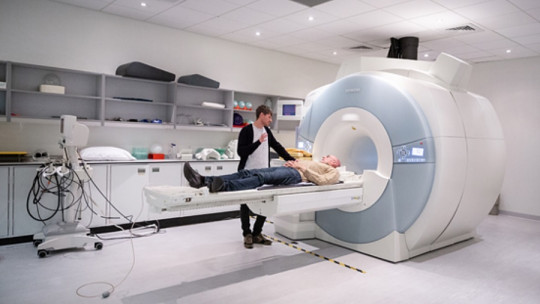What does it mean to suffer from a language disorder like aphasia? How can we detect the symptoms of aphasia? Discover what the types of aphasia are and how to treat them.
The aphasia It is a language disorder that causes people to suffer certain havoc in their communication. This disorder is the result of damage to the parts of the brain that affect language. Therefore, aphasia has a very significant impact on the ability to understand or express speech. But how to detect aphasia, its symptoms and how to deal with it?
What is aphasia? Definition
The aphasia It is a language disorder that results from damage or trauma suffered in the parts of our brain that regulate language, specifically the left hemisphere. People who suffer from aphasia experience difficulties speaking, listening, reading or writing. Even so, we must emphasize that aphasia does not have an impact on the intelligence of those who suffer from it, it only affects their ability to communicate.
In a large part of the cases, aphasia and its effects on language They are usually caused by a stroke. On the other hand, there are also other factors that can influence suffering from it, such as the presence of a brain tumor or a traumatic brain injury (TBI). The development of aphasia usually occurs suddenly, but in cases where it is caused by a tumor or a progressive neurological disorder it can also arise gradually.
Types of aphasia
There are different types of aphasia which are differentiated from each other by the affected areas and the symptoms they cause:
- Broca’s aphasia: results from damage to a part of the brain called Broca’s area. This area is where our frontal lobe is located, one of the areas responsible for speech and motor movement. People who suffer from Broca’s aphasia They are characterized by having the rhythm and intonation of their words altered. In addition, they often have difficulties in their listening comprehension, which makes it difficult for them to understand some complex sentences. Although expression is affected, language comprehension is almost unaffected. In relation to intelligence, it does not have an impact on adults but when it occurs in childhood it can have an impact depending on its severity.
- Wernicke’s aphasia: This type of aphasia affects the Wernicke area of our brain, resulting in difficulties understanding language and processing the spoken words of others. On the other hand, people with Wernicke’s aphasia They also show a different speech pattern that involves articulating sentences with incorrect words, mixing words, inserting made-up words, or speaking in a way that is incomprehensible to others.
- Global aphasia: The global aphasia It is the result of having suffered extensive damage to very large areas of the brain responsible for language. These types of aphasias can cause very extreme difficulty in communication. In these cases, people with this disorder end up having both their ability to speak and their understanding of what others communicate affected. It is usually damage from a vascular accident or physical injury from an accident.
- Conduction aphasia: People with conduction aphasia They have difficulty repeating words or sentences that have just been said to them. Although they do not usually experience difficulties with speech fluency or understanding. These types of aphasias usually affect the areas of the brain that establish a connection between Broca’s area and Wernicke’s area.
- Anomic aphasia: The anomic aphasia It implies having a difficulty naming objects. Those who suffer from this aphasia can understand and recognize the object they want to name and its use, but have problems finding the word or its specific name.
- Mixed transcortical aphasia: This is one of the types of aphasia less common. Although its symptoms are similar to global aphasia, it differs from it, since although people can repeat the phrases that are said to them with relative ease, they do not understand their meaning.
- Transcortical motor aphasia: These types of aphasia They imply that people have difficulty expressing themselves, which results in very forced, slow and short speech.
- Sensory transcortical aphasia: Although people with these types of aphasia They can replicate the sounds they hear, the reality is that they do not understand or comprehend what they are repeating.

Symptoms of aphasia
Obviously, each of the different types of aphasias have specific symptoms depending on which specific area of the brain they affect. Even so, in general, we can distinguish the following symptoms of aphasia :
- They have trouble finding the word they want to say
- Change the sounds of words
- Use made up words
- Difficulty putting words together and forming complete sentences
- Misinterpreting or not understanding what others say (especially when people speak quickly or in long sentences)
- Difficulty understanding speech when there is background noise
- Understanding other people’s words too literally and not understanding some common phrases (e.g.: it costs an arm and a leg)
In addition to these aphasia symptoms In some types, people may have problems reading and writing. There are also cases in which there are difficulties spelling words or understanding numerical concepts such as time, adding or subtracting.
How does suffering from aphasia affect you?
Because communication and speech are a very important component of functioning socially, people with aphasia They may end up developing other conditions such as feelings of frustration and/or anguish, difficulties in relationships and even suffering from depression. In fact, research reveals that around 25% of people with aphasia are diagnosed with a depressive disorder at some point.
Although suffering from a aphasia disorder It does not necessarily have to lead to a mental health condition, this pathology presents many psychological challenges for those who suffer from it. For this reason, if you suspect that you have a case of any of the types of aphasia, it is vital to go to a professional psychologist to receive a diagnosis and treatment.
What is the difference between dysarthria and aphasia?
The main difference between dysarthria and aphasia is that the first condition is not caused by any organic lesions in the brain areas. On the other hand, as we have pointed out, aphasia is the result of brain damage. In this way, dysarthria involves a loss of the ability to articulate different words, even though the person understands and can use language ‘correctly’.
Treatment for aphasia
Normally, the aphasia treatment It will depend above all on the degree of affection that exists in the patient’s communication. Likewise, the best therapy is one that is based on communication and where people are taught to transmit a message effectively. These treatments often include the use of compensatory strategies to cope with the difficulties that this disorder entails.
Furthermore, before the cases of aphasia the support of family members and loved ones is vital to help the person with this disorder communicate effectively with others.









